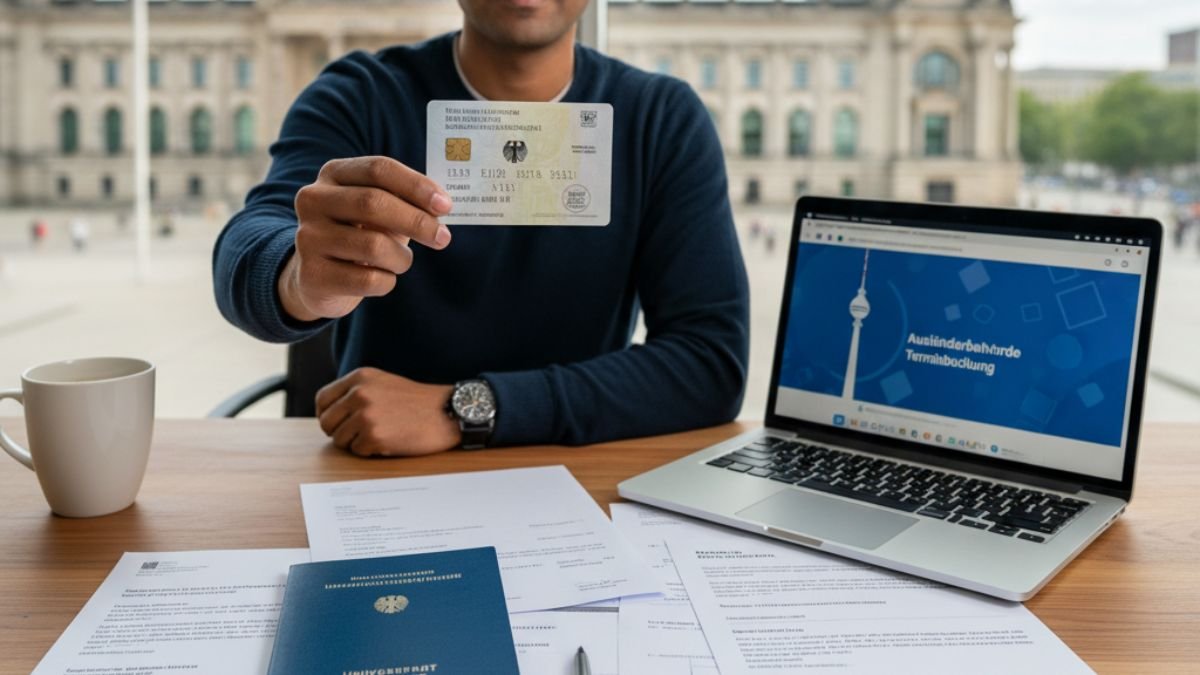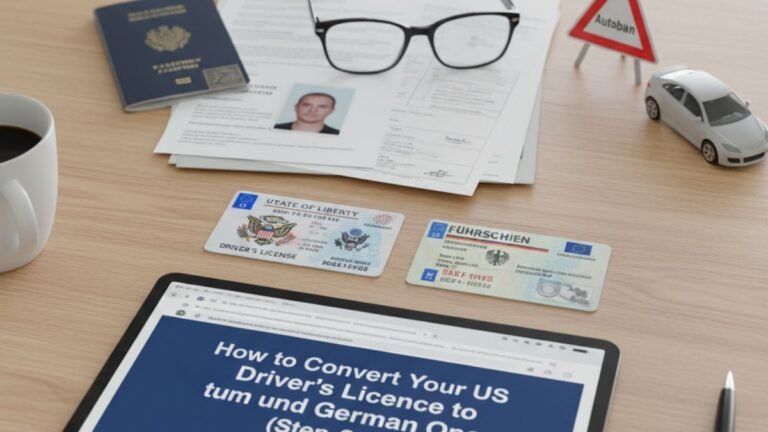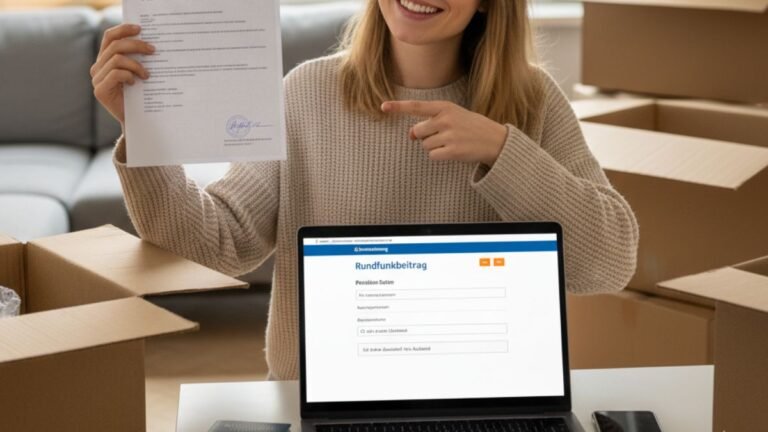Applying for Your German Residence Permit: A Complete Guide for Non-EU Citizens

For non-European Union citizens dreaming of living and working in Germany, securing a residence permit is the most crucial step after obtaining an initial entry visa. This guide will walk you through the entire process, from understanding the different types of permits to gathering your documents and navigating the application process at the Foreigners’ Office (Ausländerbehörde).
To apply for a German residence permit, non-EU citizens typically need to first obtain a national long-stay visa and then apply for the permit at the local Foreigners’ Office (Ausländerbehörde) after arriving in Germany. The specific type of permit and documents required will depend on your purpose of stay, such as employment, study, or family reunification.
Understanding the German Residence Permit
To obtain a German residence permit as a non-EU citizen, you must first secure a long-stay visa (Type D), if required for your nationality, before entering Germany. The residence permit itself is a credit-card-sized card that confirms your long-term legal right to live in Germany. It is distinct from the entry visa and is obtained after your arrival.
Key differences: Visa vs. Residence Permit
| Feature | Visa (Type D) | Residence Permit (Aufenthaltserlaubnis) |
|---|---|---|
| Purpose | An entry document for a specific long-term purpose like work or study. | Allows for an extended, long-term stay in Germany. |
| Validity | Temporary, typically lasting 3 to 12 months. | A longer-term document that replaces the national visa after you arrive. |
| Application | Applied for at a German embassy or consulate in your home country. | Applied for at the local Foreigners’ Office (Ausländerbehörde) after arriving in Germany. |
| Pathway to Permanence | A stepping stone to obtaining a long-term residence permit. | Can lead to a permanent residency (Niederlassungserlaubnis) after several years. |
Common residence permit types
The type of residence permit you apply for will depend on your reason for staying in Germany. The most common categories include:
- Residence Permit for Qualified Employment: For foreign skilled workers with a recognized qualification and a concrete job offer. In some cases, approval from the Federal Employment Agency is required.
- EU Blue Card: A special permit for highly skilled workers with a university degree and a salary that meets a certain threshold. It offers a faster path to permanent residency.
- Opportunity Card (Chancenkarte): A new permit since 2024 for non-EU nationals to come to Germany to seek work for up to one year. It allows for part-time work or trial employment during the job search.
- Residence Permit for Study: For international students enrolled in a German university or language course. You must provide proof of admission and financial resources, such as a blocked bank account (Sperrkonto).
- Residence Permit for Family Reunification: For family members of a German citizen or a legal resident. Requirements may include proof of the relationship and German language skills for the spouse.
- Permanent Residence Permit (Niederlassungserlaubnis): This is for those who have lived in Germany for an extended period, typically five years, and meet requirements such as German language proficiency (B1 level), stable finances, and pension contributions.
Required Documents
- Valid passport
- Completed application form
- Biometric passport photo
- Certificate of address registration (Meldebescheinigung)
- Proof of sufficient financial resources (e.g., employment contract, blocked account, bank statements)
- Proof of comprehensive health insurance coverage
- Proof of the purpose of your stay (e.g., job contract, university admission)
The Application Process: A Step-by-Step Guide
The application process generally begins after you have entered Germany with the appropriate national visa. Here’s a breakdown of the key steps:
Step 1: Register Your Address (Anmeldung)
Within 14 days of your arrival in Germany, you must register your address at the local Residents’ Registration Office (Bürgeramt or Einwohnermeldeamt). This is a mandatory step for everyone residing in Germany. You will receive a registration certificate (Anmeldebestätigung), which is a crucial document for your residence permit application.
Step 2: Secure Health Insurance
Proof of valid health insurance is a prerequisite for obtaining a residence permit. You can choose between public (gesetzliche Krankenversicherung) and private (private Krankenversicherung) health insurance providers. Ensure your coverage meets the requirements set by the German authorities.
Step 3: Gather the Required Documents
This is often the most time-consuming part of the process. The specific documents required will vary depending on the type of permit you are applying for. However, a general checklist includes:
- Valid Passport: Your passport must be valid for the intended duration of your stay.
- Completed Application Form: The “Antrag auf Erteilung eines Aufenthaltstitels” (Application for a Residence Permit) can usually be downloaded from the website of your local Foreigners’ Office.
- Biometric Passport Photos: These must meet specific requirements.
- Proof of Financial Means: You need to demonstrate that you can support yourself financially. This can be in the form of a blocked account (Sperrkonto), a letter of commitment from a sponsor (Verpflichtungserklärung), or an employment contract with your salary details.
- Proof of Health Insurance: A certificate from your health insurance provider.
- Address Registration Certificate (Anmeldebestätigung)
- For Employment: Your employment contract, a job description, and sometimes approval from the Federal Employment Agency (Bundesagentur für Arbeit).
- For Study: Your letter of admission from the university or educational institution and proof of enrollment.
- For Family Reunion: Marriage certificate, birth certificates of children, and proof of the resident family member’s status in Germany.
- Proof of German Language Skills (if applicable): For some permits, a certain level of German proficiency is required.
Step 4: Schedule an Appointment at the Foreigners’ Office (Ausländerbehörde)
Once you have all your documents in order, you need to schedule an appointment at the Foreigners’ Office in your city. It is highly recommended to book this appointment well in advance, as waiting times can be long.
Step 5: Attend Your Appointment
On the day of your appointment, arrive on time with all your original documents and their photocopies. Be prepared to answer questions about your purpose of stay. You will also need to pay the application fee, which can vary depending on the type and duration of the permit.
Step 6: Await the Decision and Collect Your Permit
After your appointment, the Foreigners’ Office will process your application. This can take several weeks. If your application is approved, you will be notified to collect your electronic residence permit card (elektronischer Aufenthaltstitel – eAT).
Important tips
- Start early: The process can be lengthy. Apply for your visa well in advance and book your Foreigners’ Office appointment as soon as you arrive.
- Double-check requirements: The specific requirements can vary depending on the local Foreigners’ Office. Check their website or contact them directly for the most accurate and current information.
- Gather documents carefully: Make sure all your documents are correct and complete to avoid delays or rejection of your application.
- Maintain legal status: Make sure to apply for an extension of your permit before your current visa or permit expires. Overstaying is a serious offense.
Applying for a German residence permit can seem daunting, but with careful preparation and a clear understanding of the requirements, you can successfully navigate the process and begin your new life in Germany.
If you’re looking for more blog like Guide to Getting Your German Tax ID and Guide to Getting Your Anmeldung in Berlin subscribe to join us.






